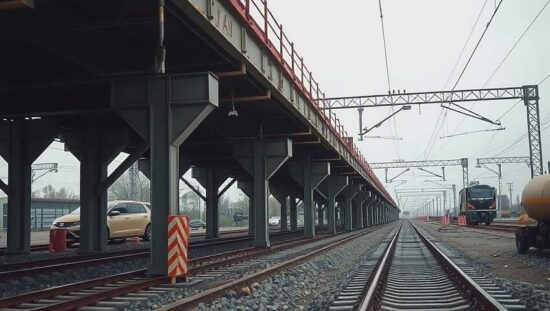A compromise has been reached within the German government regarding escalating track access charges, a move sparking cautious optimism while simultaneously exposing deeper structural issues within the country’s rail infrastructure. Federal Minister Patrick Schnieder (CDU) hailed the agreement as a “good transitional solution” designed to alleviate the immediate financial pressures facing both passenger and freight rail operators.
The agreement secures the disbursement of €105 million in funding for the current year, representing a reversal of earlier hesitations. Crucially, it also paves the way for a new, legally sound framework for subsidies by 2026. For freight rail specifically, the government pledges a significant €265 million in federal funding for 2026, supplemented by revenues generated from contractual penalties levied against underperforming rail operators – largely linked to violations of quality and performance targets.
However, the resolution highlights a prolonged policy debate concerning the cost of rail transport. Elevated track access charges, levied by rail operators for the use of the rail network, have been a point of contention, threatening to significantly increase prices for both passengers and businesses reliant on rail freight services. The government hopes that the cost reductions afforded by the new measures will be passed on to consumers, mitigating the potential for steep price increases.
Beyond the immediate financial relief, significant regulatory adjustments are planned. The government intends to amend the Railway Regulatory Law (ERegG) to lower the acceptable rate of return on equity applied to DB InfraGO AG, a subsidiary responsible for rail infrastructure, to 1.9 percent. This move is intended to limit the company’s ability to inflate prices, but critics argue it represents a further intervention into the operations of a privatized infrastructure entity. The draft legislation is expected to be enacted later this year.
The compromise, while welcomed by some, also underscores a deeper concern: the urgent need for a fundamental overhaul of Germany’s track pricing system. The “transitional solution” merely postpones the problem, failing to address the core issues of infrastructure investment, operational efficiency and the long-term viability of both passenger and freight rail services. The effectiveness of the measures and whether they genuinely translate into affordable rail travel and competitive freight rates, will ultimately depend on the government’s commitment to delivering sweeping reforms beyond this immediate, albeit necessary, reprieve.





